Natural Ways to Kill Weeds in Grass
Updated Nov. 4 2020, 4:07 p.m. ET
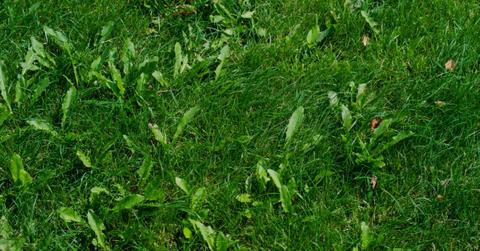
So, you just finally got rid of all the persistent weeds that had been gumming up the roots in your garden beds. Everything is looking perfect and things are growing nicely. There’s just one problem: your lawn seems a bit overgrown in places. Not only overgrown, overrun. The weeds are back and they’ve found a place that you can’t reach without risking your entire lawn... or so they think.
There are a ton of highly-toxic or even carcinogenic weed killers on the market that will absolutely get rid of your weeds and leave your grass intact, but we’re willing to bet you’d rather not resort to such measures. Especially if you or your kids have any plans to walk barefoot through that grass at any point in the spring or summer. So what’s the alternative? How do we get rid of the weeds on our lawn naturally without killing the grass? Well, we’ll tell you how.
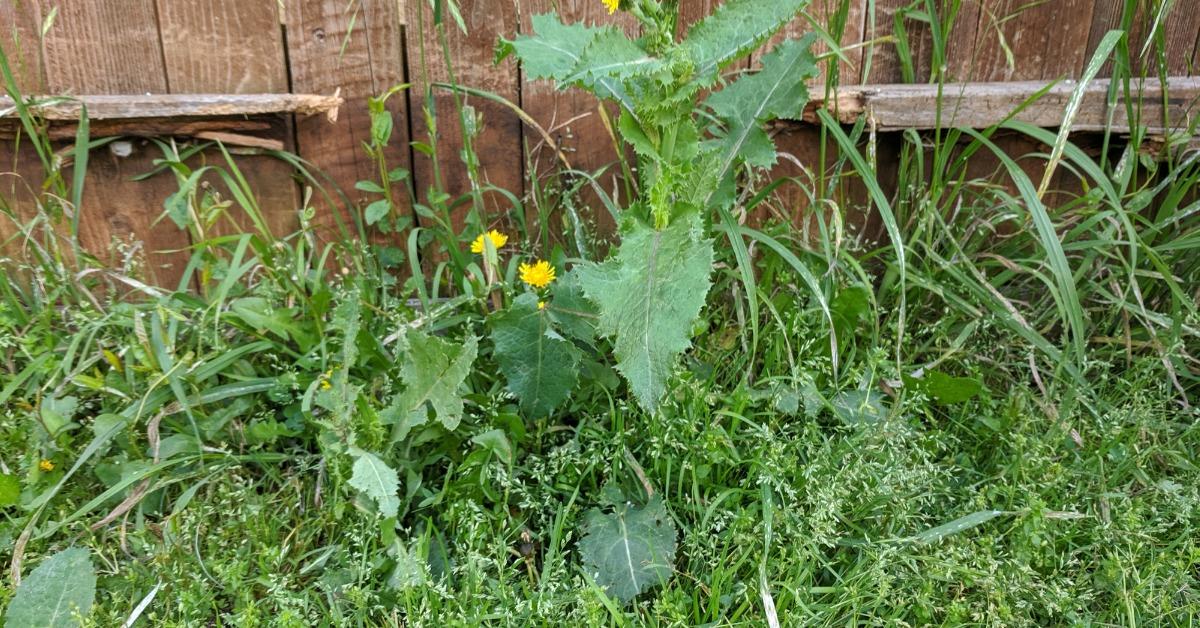
What type of weeds grow best in grass?
Weeds come in many different shapes and sizes. Some may look like dandelions or ragweed, oxalis, chickweed, stinging nettles, or ragweed, and so they will stand out from the grass. Others, crabgrass, for example, look an awful lot like regular grass, so it’s harder to tell. These will look just like grass, and so it’s not always easy to tell which are weeds.
It’s important to know what to look for before diving in, especially if you plan on pulling them out by hand. It’s a viable, albeit time-consuming method, but it’s better than using Roundup. If you choose to do this, make sure to have a small shovel or trowel available to dig out tougher roots.
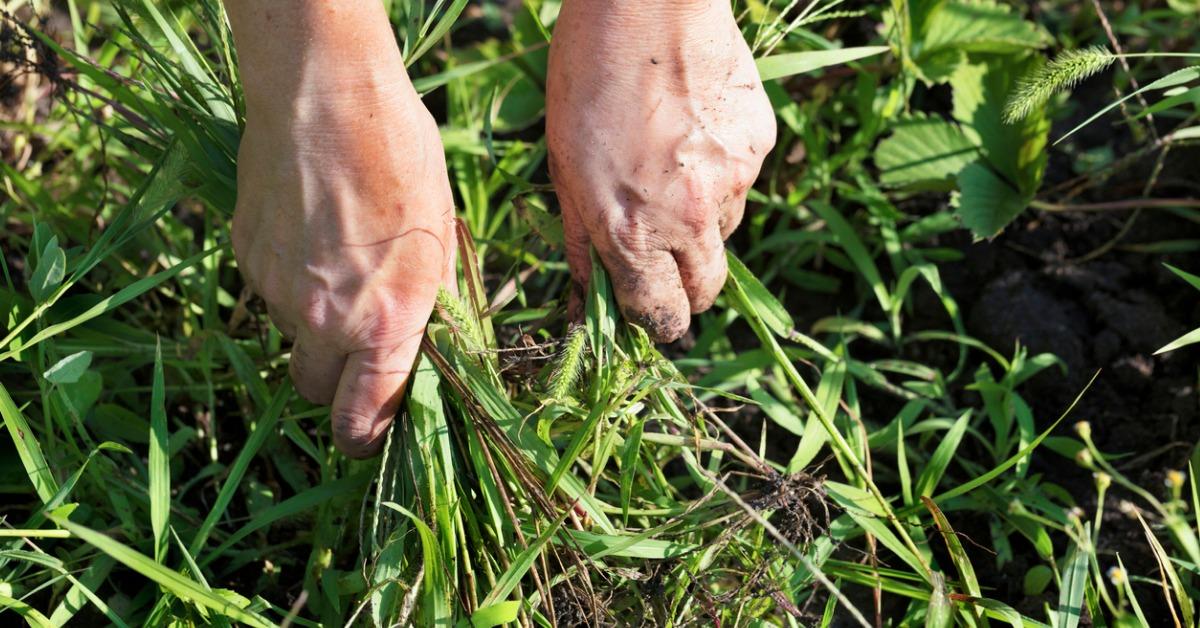
What are some natural ways to kill weeds in grass?
Pouring boiling water onto the weeds is a good way to both kill the invasive plants at the roots and water the rest of the lawn at the same time. Simply bring your kettle to a boil and walk around your lawn, looking for newly-sprouted weeds. This method works better on sidewalks and other such areas, because the water can kill surrounding grasses if they are not particularly hearty.
There are several organic weed killers available to environmentally-conscious gardeners. One of these, corn gluten meal, is a safe, proven method for eliminating weeds and not killing the grass surrounding it. The milling process prevents weeds from germinating into full-grown plants, but should not be used on newly-grown grass. It also happens to be safe for animals and has the added bonus of adding nitrogen to your lawn. Nitrogen makes for great fertilizer and it’s one of the elements created when composting as well.
Are there natural chemicals I can use to kill weeds in my grass?
There sure are, though you may want to use them sparingly. White vinegar on its own is an excellent way to eliminate weeds and other unwanted plants, but the acetic acid in it will likely kill many of the plants around it as well. If you’re going to use it, you’ll have to spray it directly on each of the weeds. You could also spray it on a cloth and wipe it over the weed’s leaves rather than risk spritzing your lawn.
Salt will have a similar effect to vinegar but it carries the same caveats. Salting the earth where the weeds reside will likely destroy the roots of the surrounding grass as well. However, a mixture of liquid dish soap, salt, and vinegar might go a long way in helping prevent weeds before they pop up. Simply mix 1 gallon of white vinegar with 1 cup of salt and 1 tablespoon of liquid dish soap, then spray directly onto the weeds or any area where the weeds might have popped up in the past.
Another mixture involves using the elements of your liquor cabinet. Soap, vinegar, and a little bit of vodka will create a potion that can dry out even the most stubborn weeds. Just apply with care. Vodka isn’t just for livening up a cocktail, it can dry out grass as well.
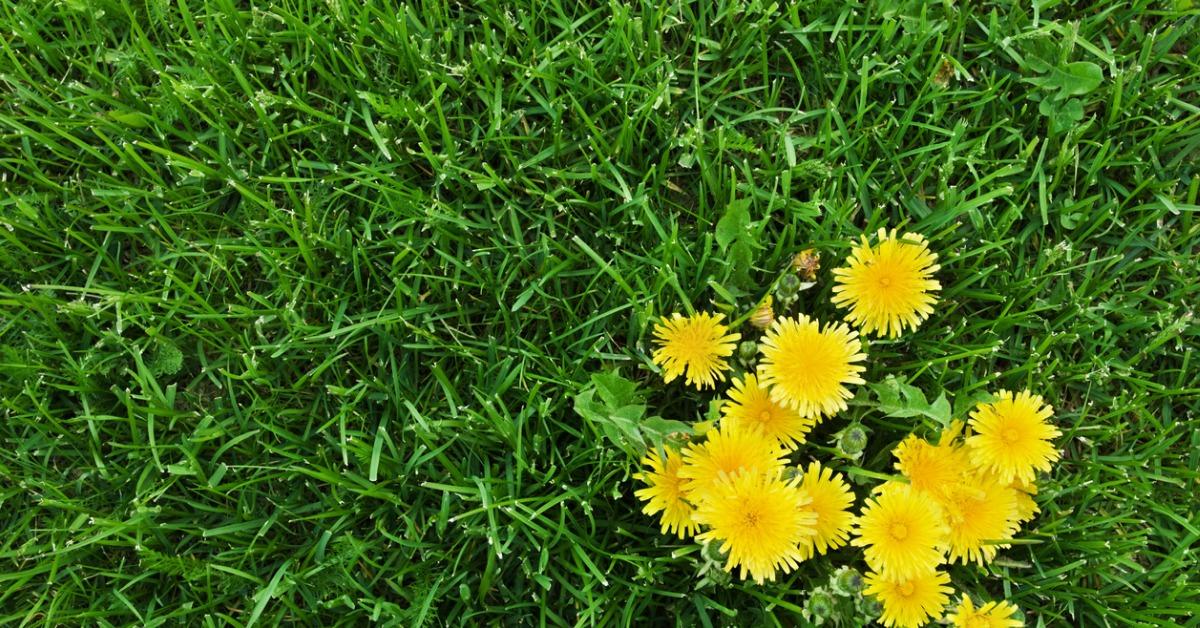
How do I eliminate the weeds without destroying my grass?
The biggest challenge concerning getting rid of weeds in the grass is making sure that you kill the weeds and not the lawn. Many people don’t actually believe that such a thing is possible with homemade weed killers, but even the mixtures mentioned above can be achieved with a little precision. Simply wipe the vinegar or salt concoctions on the leaves of the plants, rather than spraying and you should be fine. It might take a bit longer, though they say patience is a virtue.
Other, less invasive methods involve letting your grass grow taller while the weeds are coming up. The tall grass might do enough to block out the sunlight for the weeds. The stronger roots might even be able to choke out the weeds’ roots before they have a chance to do the same. Weeds are resilient little buggers though, so don’t rely on your grass to do the work for you.
More invasive methods involve something called flame weeding, which involves using a long wand on the end of a propane tank to literally “burn out” weeds. We would not recommend doing this on grass, however, as it may cause a fire. Frankly, we wouldn’t recommend this practice at all — we just thought it would be neat to mention it.
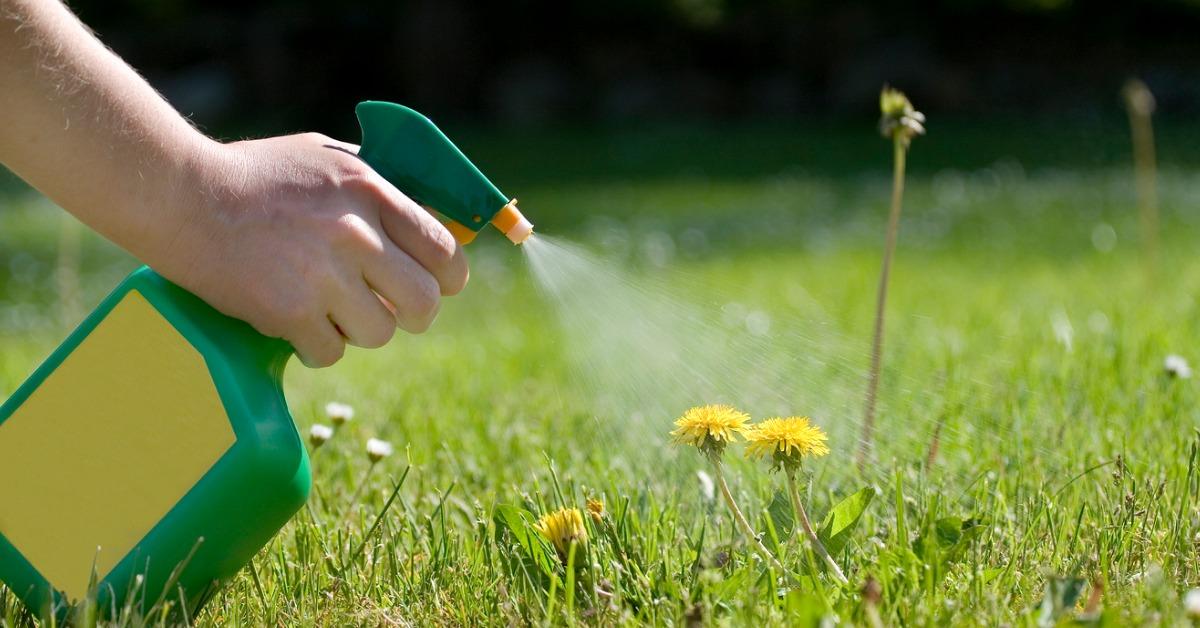
Are there any industrial weed killers that do the trick but aren’t toxic?
We will level with you, industrial and store-bought weed killers are perfectly valid options for killing off your weeds, provided that they are so much of a problem that they cannot be dealt with otherwise. They will certainly kill off the weeds and might not kill off the lawn, in the process. Then again, they might also kill off some of the local wildlife as well.
The thing is, if your weed problem is so extensive that you are considering such an action, you may want to rip up everything, throw down some mulch, and begin again. The alternative is dousing your yard with poison and we can’t, in good conscience, recommend such a thing.